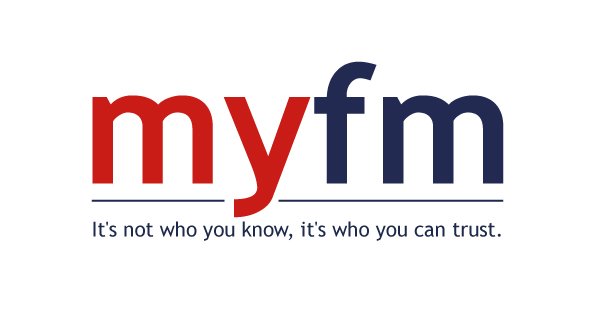The Secrets Of A Successful Consultant
Holly | myfm:
"Marie, thank you so much for speaking with us today. From your experience, what are the key differences between an interim and consultant because there's much debate. Do clients know what they want in terms of an interim or a consultant? How do you navigate all of that?”
Marie:
"Nine times out of 10, they don't know what they want and it depends on the project. For example, if it's a mobilisation or demobilisation, then there will be time constraints. That would very much be an interim role. You go in to support the team, provide an extra pair of eyes, ears and hands if necessary and make things happen to that time scale.
In a consultancy role, it’s a more long-term slower process. It’s still about analysing what’s happening and how, but usually it’s cost driven and the client will be looking for improvements and how they’re going to achieve them.
The first thing people think is “Oh there's going to be redundancies”. It's not the case - it's just a question of identifying how they can work smarter".
>>> Like reading this kind of expert content? Join our mailing list here! <<<
Holly | myfm:
"Can you give us an example?”
Marie:
"It’s quite often inherited terms and conditions. For example, a client has said we don't want any cleaners in our area until we're here. So why have we got cleaners starting at 8 when the client starts at 9? The cleaners can't get in for an hour.
Have discussions with the client to consider adjustments in schedules, such as allowing cleaners access to the office before staff arrive. You also need to understand the perspective of the staffing team, whether they prefer working when clients are present or in an empty office. The goal is to take into account the workplace culture and reach a mutually agreeable solution that benefits everyone involved".
Holly | myfm:
"Have you ever come across a client who is completely out of touch with what the real problem is and what needs addressing at a root level?”
Marie:
"Yes, because people move on. So take a cleaning contract was let for maybe a three-year period and at the time that it was let, the hours of cleaning were agreed, and that suited everybody. The person who let the contract from the clients point of view has possibly moved on.
Perhaps the nature of the business has changed but the original contract terms and conditions have stayed the same, so that would be a question of saying, well, we need to renegotiate and be sensible about it. Sometimes it depends on the location.
It's simple things like if the bulk of your cleaners come to site by public transport and all of a sudden the bus service is cut, that has a huge impact on your cleaning operation, which maybe that undoubtedly the client isn't aware of. So again it’s finding a solution i.e. we’ll put up transport for our staff.
It's not always an easy thing to do exactly. Quite often you do find that you're piggy in the middle, but also that you're that reasonable person because you don't have an axe to grind. But you're not on either side because at the end of the day you're going to walk away, hopefully leaving a happy client and workforce. But you know, the fact that you are completely impartial is a very positive thing".
Holly | myfm:
"So how do you personally manage when there are so many parties involved and there's so many factors to think of? What's your secret to managing and getting the results?”
Marie:
"In short, talk. Listen, talk some more. Ask the questions. There's no such thing as a silly question.
If you ask the same question to six people, you'll get six different answers. So how do you go about saying, well, hang on, what’s really happening here? It's verifying the facts, double checking and then communicating.
What I normally do in a situation where I’m on site temporarily, be it as a consultant or an interim project manager, is make sure I have regular weekly meetings with all parties and representatives concerned. I also put out a Friday newsletter saying “This is what's happened and this is what's anticipated to happen in the forthcoming days” so people are aware because the worst thing is when someone says “Well, nobody told me”.
It's about being open with people, being transparent but also managing their expectations. Everyone needs to know what the brief is. What are your responsibilities and theirs?”
Holly | myfm:
"How do you draw the boundaries between being a consultant and interim? How do you define that in your own type of priorities when you're approaching a project?”
Marie:
"The first thing is to confirm what the brief is and make sure all parties concerned know what that brief is. There's nothing worse than going onto a site and people have no idea who you are or what you're there to do because nobody's told them. So you've got that barrier to break down.
There's a big difference between selling a service and operationally delivering it. They've bought in a service because they don't have the expertise, but it’s about really understanding the end results to be achieved and how".
Holly | myfm:
"What would you say the general trend is when a client is making those decisions? Is it usually an interim or consultant required?”
Marie:
"To be honest, I think the initial stage would be to have a very detailed, honest conversation with the client making the decision. What do they need? It could be they've lost a key member of their permanent staff and they're looking to maybe restructure, replace or simply look for a different way of doing things.
Nine times out of 10, they're being given information by people down the food chain, which is saying we need extra bodies and sometimes it's a knee jerk reaction saying “Oh, we'll get somebody in, but we don't really know what that somebody is going to do or what we need them to do.
So an initial conversation in depth with the people making the employing decision, be it temporary or permanent, is absolutely critical".
Holly | myfm:
"What side of the fence do you prefer to sit on in FM? Do you like to do the interim hands on tasks or do you prefer to have a bird's eye view on the consultancy side?”
Marie:
"I think for me I very much prefer the interim role. Going in, hitting the ground running, working silly hours in order to gather the information. It's like I need to get in and get out but it's getting that appreciation of what the problems are, because if everything was hunky dory, you wouldn't be there in the first place.
I liken the role to a spike on top of an umbrella; all the information feeds into you, but you can see what’s happening all the way round and bring it together. Then you make your recommendations. It might be that you see it from a completely different perspective than the client, but you've got you've got down and dirty on the frontline and understood the operation as it really is. Not from an ivory tower".
Holly | myfm:
"Have you seen scenarios where an interim has been positioned and then a consultant comes in as a result of that or a consultant sort of morphs more into an interim? Have you seen those kind of transitions?”
Marie:
"I have in one particular instance where it was very obvious that shift patterns needed to be altered in order to meet the client’s change of business needs and for that to happen, there was a requirement for HR consultancy to go in. There was a requirement for staff to be multi skilled so training was needed. We went from a week of “Let's have a look at this” and ultimately it ended up being six months - not necessarily for me, but for having to bring in the expertise required, particularly in training".
Holly | myfm:
"And for any interims reading this who are considering stepping into the consulting world - what advice would you give them?”
Marie:
"Keep an open, listen to everything that's going on, read the trade journals and talk to other professionals. Keep your information up to date and who knows what the future holds?”
Our experts are here to help with competency and your capacity-related demands.
Scroll through the myfm team below and click to find out more on their experience, skill set and how they can help your business and needs.





